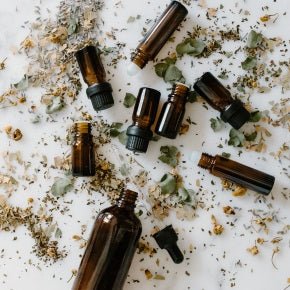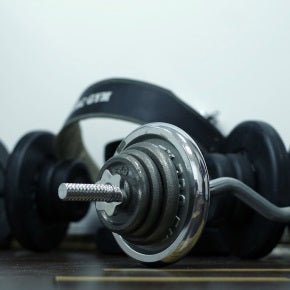How can you tell if you are deficient in a certain vitamin? This week’s Nutrition News covers the tell-tale signs of zinc deficiency as well as interesting research into the ageing gut microbiome.
Read the full round up of the latest studies and research here.
Zinc deficiency illustrated in nails
Zinc is a vital nutrient that plays a role in a host of bodily functions, including maintaining normal hair, skin and nails. Because of this, nail dystrophy, which is the discolouration and distortion of nails, can be a telling sign of zinc deficiency according to this article by Medical News Today.
Zinc catalyses enzymes, regulates gene expression, and enables protein folding, which helps proteins in the body grow and stay strong and includes nail proteins. When the body doesn’t get enough zinc, this can result in the drying of the nails, leaving them brittle and prone to cracking. If a person has a severe zinc deficiency, they can even lose their nails completely.
Brittle nails are not the only sign of zinc deficiency that you can spot from the nails. Other visual clues include cuticle inflammation and paronychia, which is an infection of the skin around the nail, Beau’s lines, which are grooves that run horizontally along the nail, Muehrcke’s lines, which is similar to Beau’s lines but manifests itself as double white lines across the nail. Other symptoms include onychorrhexis, which causes vertical ridges along the nails, and leukonychia, which appears as white colouration of the nails.
These symptoms may not always be caused by zinc deficiency but can act as an important prompt to check your levels to ensure no further damage is caused to the body. With zinc deficiency affecting as many as 15-20% of people worldwide, it is a common issue that can easily be rectified through diet and hair, skin and nails supplements.
Distinct gut microbiome signature associated with healthy ageing
As we age, it is perfectly normal – and healthy! – for our bodies to change. As it turns out, that extends to the gut microbiome.
According to one study reported by NutraIngredients-USA, one of the clearest associations between gut health and a longer, healthier life was a gut microbiome that adapts as you age. Researchers from the Institute for Systems Biology looked at three different cohorts that covered 9,000 individuals between the ages of 18 and 101 years old, they then analysed longitudinal data of over 900 individuals between 78 and 98 years old, tracking their health and survival outcomes.
What the researchers found was that a gradual decline in the genus Bacteroides, which is one of the most prevalent bacterial microbes in the large intestine, was the factor most associated with healthy ageing. This decline was not seen in the less healthy older individuals studied in the research, suggesting that a healthy gut microbiome is one that evolves and ages with you.
The study’s authors stress that, as the analysis was primarily cross-sectional, further research would be needed and, in fact, the findings beg more questions than they answer as the researchers are not sure what drives these shifts in the gut microbiome as we age.
However, what does seem to be clear is that a healthy microbiome at 60 or 70 years old may not resemble that of a 20 year old’s healthy gut microbiome, suggesting that dietary and probiotic recommendations for gut health may be better tailored to a person’s age.
The link between vitamin D and cholesterol
The link between vitamin D and bone health, healthy teeth and immune system support is well known but few people are aware of the link between the so-called sunshine vitamin and cholesterol.
Cholesterol is usually associated with negative press as too much cholesterol can block blood vessels, leading to heart complications. However, the body produces cholesterol naturally and is needed as it contributes to the production of vitamin D and several hormones. It is only when too much of this fatty substance is consumed that the levels of cholesterol rise beyond the healthy range to unhealthy levels that can then cause heath issues.
There are many inconclusive studies on the link between cholesterol and vitamin D and, while we need cholesterol to aid the production of vitamin D, it is hugely important to maintain appropriate levels of both nutrients in order to keep healthy, as summarised in this Medical News Today article.
Share your thoughts
Agree with the findings in this week’s Nutrition News? Share your thoughts with us on Facebook and Twitter.
 Alison is Director and Founder of Metabolics who writes about Metabolics updates, events and natural healthcare. Her experience and passion for natural supplements and healthcare comes from her years of experience as a practising osteopath, having founded Metabolics in her search for high quality, natural products in her own work. Alison has been a qualified and practising Osteopath since 1981 and regularly gives seminars on a range of healthcare subjects to the wider practitioner community helping share her knowledge and experience.
Alison is Director and Founder of Metabolics who writes about Metabolics updates, events and natural healthcare. Her experience and passion for natural supplements and healthcare comes from her years of experience as a practising osteopath, having founded Metabolics in her search for high quality, natural products in her own work. Alison has been a qualified and practising Osteopath since 1981 and regularly gives seminars on a range of healthcare subjects to the wider practitioner community helping share her knowledge and experience.





